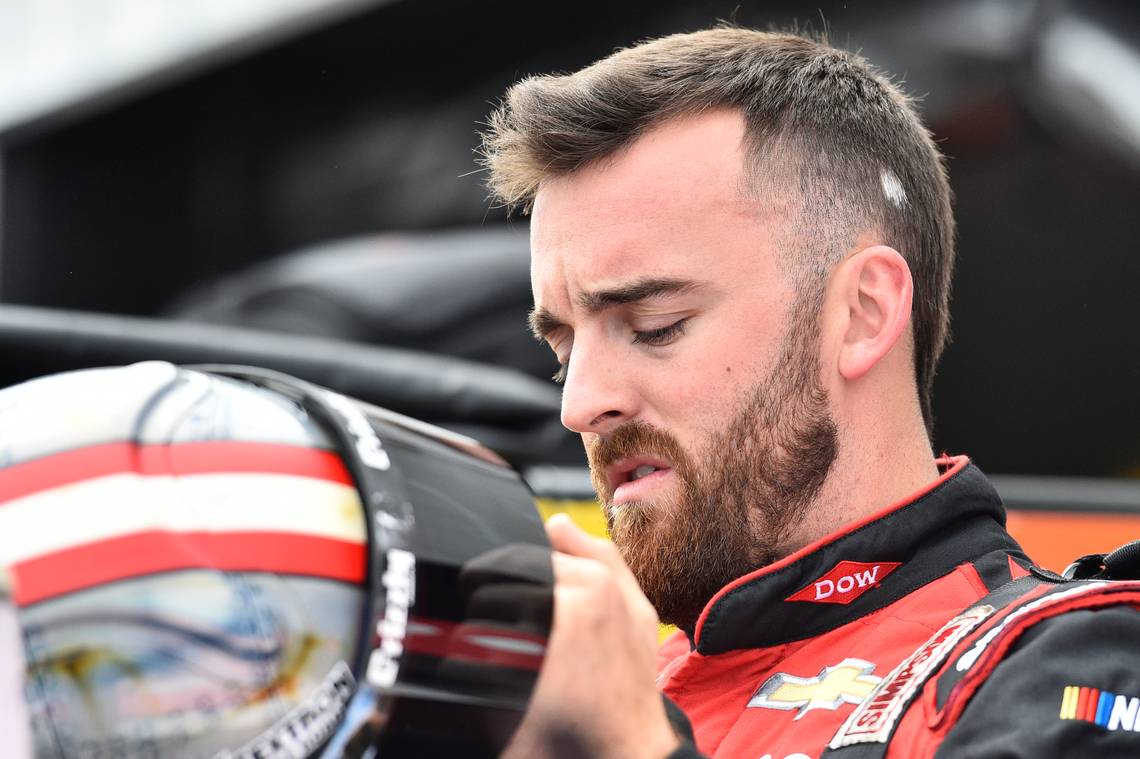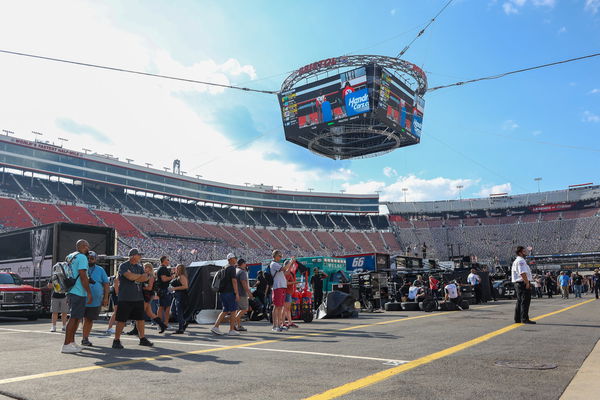The recent $1 million penalty levied against Austin Dillon has sparked a heated debate in the NASCAR community. It brings into question the balance between enforcing rules and keeping the sport exciting for fans. Some argue that such a penalty is necessary to prevent unsafe behavior, while others believe that it risks taking the fun out of the sport and alienating its audience. The case of Dillon shines a spotlight on the bigger issue of how NASCAR’s decisions shape both its future and the careers of its drivers.
When NASCAR made the call to strip Austin Dillon of his playoff spot, it sent shockwaves through the world of racing. Dillon’s victory at Richmond Raceway was mired in controversy, largely because of how he handled the final moments of the race. In a last-lap battle with Joey Logano and Denny Hamlin, Dillon’s aggressive driving raised eyebrows. While Dillon stood in victory lane, celebrating, NASCAR officials were already contemplating the consequences of his bold moves.
The heart of the issue revolves around the balance between aggressive competition and sportsmanship. Dillon’s driving was deemed reckless and intentional, which clashed with the core values NASCAR tries to protect. By penalizing Dillon, NASCAR sent a clear message: fairness and integrity come first, even if it means punishing a star driver.
This decision, though divisive, sets a precedent for how future incidents might be handled. Critics argue that such a steep penalty could water down the adrenaline-fueled nature of NASCAR. After all, racing is inherently risky, and penalizing drivers for bold moves might take away from the thrill that fans love. On the flip side, supporters believe that ensuring a level playing field is key, especially when one driver’s actions could put others in harm’s way. NASCAR’s dilemma is finding that sweet spot between high-stakes competition and maintaining a respectful, safe environment for all drivers.
The way NASCAR arrived at this penalty decision raises additional questions about fairness. The process seemed slow and drawn-out, leaving many to wonder if NASCAR’s decision-making system is as transparent as it should be. While there was ample evidence to rule on Dillon’s actions, officials chose to take their time, only later deciding to revoke his playoff eligibility and hit him with a hefty points deduction. This delay created confusion and gave the impression that NASCAR’s judicial system might not be as consistent as people expect.
In sports, swift and fair decisions are vital. Delays or seemingly inconsistent rulings can make it seem like favoritism or bias is at play, which is damaging to the credibility of any sport. In Dillon’s case, opinions were split. Some felt the penalty was too harsh for the offense, while others saw it as a necessary action to uphold the rules.
The implications of such penalties go beyond just one driver—they shape how the entire sport is perceived. If penalties are seen as too severe or arbitrary, it can cast doubt on NASCAR’s fairness as a governing body. To keep the competition fair and exciting, NASCAR may need to refine its penalty guidelines and speed up its decision-making process. Consistency and transparency in enforcing rules will help build trust among teams, drivers, and fans alike.
The ongoing debate surrounding Dillon’s punishment reflects a larger issue within motorsports governance: how to regulate the sport effectively without stifling its spirit.
David Hoots, a longtime NASCAR official, weighed in on the controversy, offering some perspective on why such a significant penalty was necessary. According to Hoots, maintaining fairness in motorsports is critical, even if it means handing down punishments that seem extreme.
In competitive racing, he explained, officials must walk a fine line between rewarding performance and upholding the rules. The decision to impose such a heavy penalty on Dillon, while tough, underscores NASCAR’s commitment to its standards. No matter the emotional or financial cost to the teams involved, NASCAR remains firm in enforcing its regulations. This consistency, Hoots argues, is what helps the sport retain its integrity.
While the penalty may seem like a massive setback for Dillon and his team, especially as they look towards the 2024 season, it sends a broader message. NASCAR’s strict adherence to the rules means that no one, not even a big-name driver, is above the law. Hoots’ comments suggest that this level of fairness is essential for NASCAR to continue thriving, even if some decisions appear harsh in the short term.
The $1 million penalty slapped on Austin Dillon is more than just a punishment—it’s a reflection of NASCAR’s evolving approach to governance. As the sport grows and changes, its officials are tasked with finding the right balance between preserving the thrill of competition and ensuring fairness for all involved. Fans, teams, and drivers will continue to debate whether Dillon’s penalty was too harsh or completely justified. What’s clear is that decisions like these will shape the future of NASCAR, testing its ability to maintain excitement while protecting the integrity of the sport.
Is Austin Dillon’s $1 Million NASCAR Penalty Fair or Too Extreme? Fans Weigh in on the Controversy.




